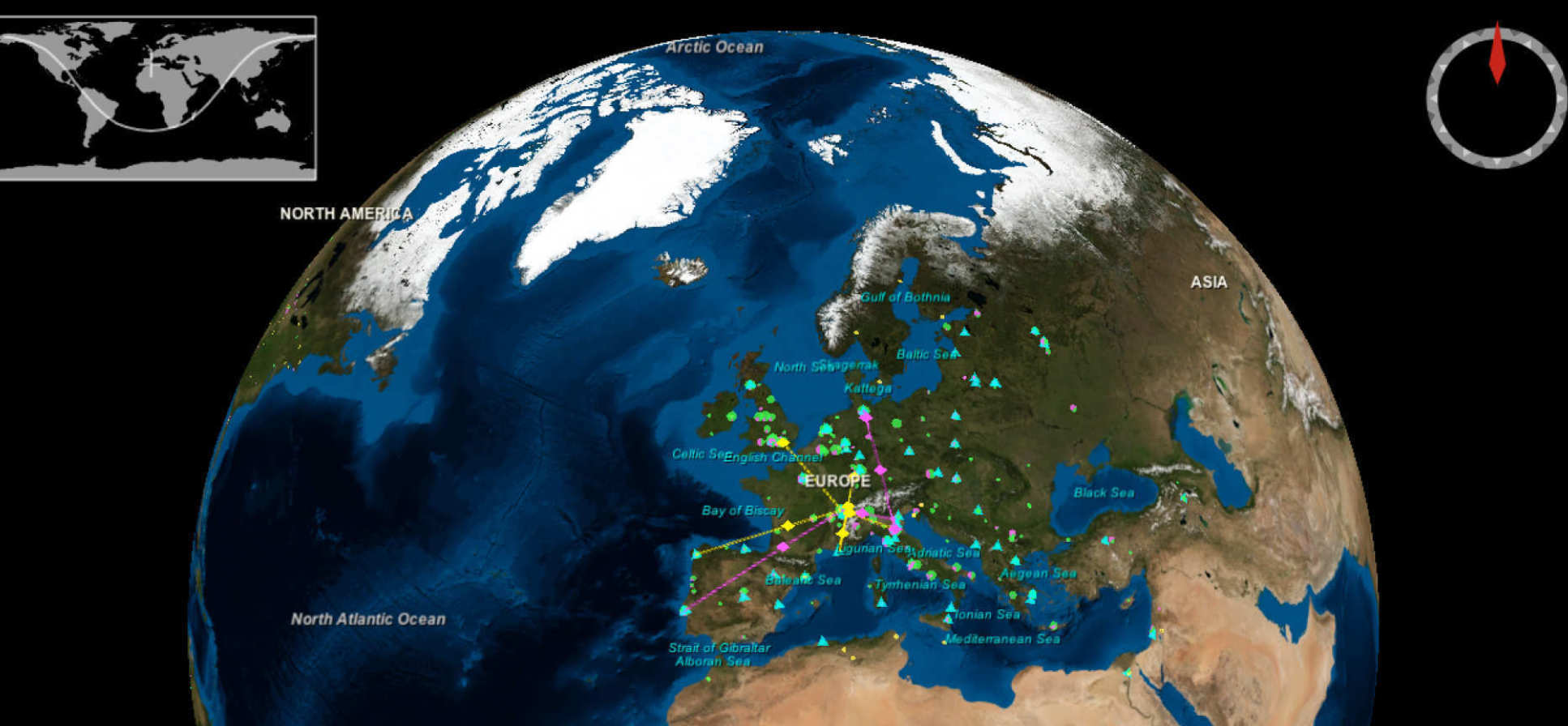The demands of processing and storing the data recorded by the experiment are such that a virtual army of computers, distributed over many sites around the world, are needed by the CMS Collaboration. Managing all of these machines is a tremendously complex task, requiring software tools that are sophisticated enough to cope with the ever-shifting goal posts of a cutting-edge research programme, yet provide the users (i.e. CMS physicists) with an interface that leaves them only worrying about the physics.
The Imperial College CMS group has long been at the forefront of the UK's efforts in this area. For example, the Imperial College Real Time Monitor allows the user to visualise and explore Grid activity around the world in, as the name may suggest, real time.
